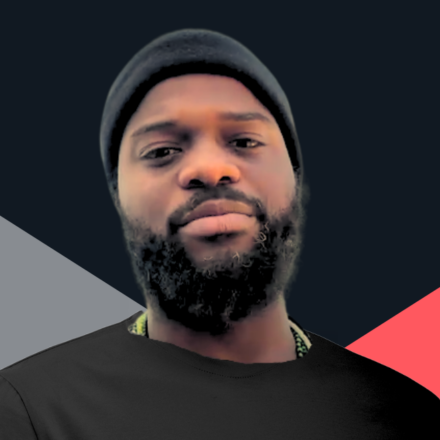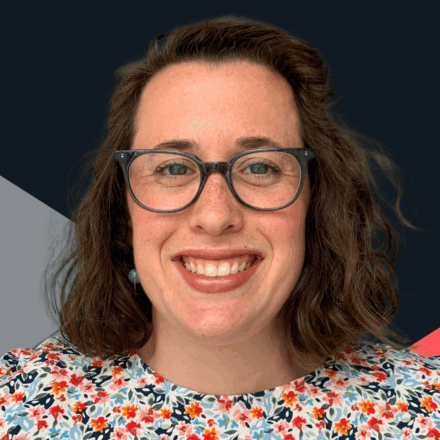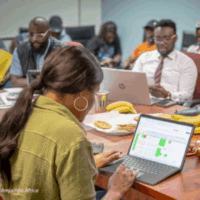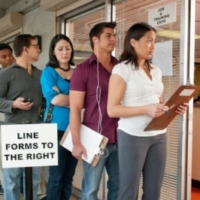I was inside for a total of 36 years, and when I got out from my last stint five years ago, there was no one who could help me get established with a life on the outside. I was on my own with $40 and a train ticket, which is what they have been giving people when they are released from prison in New York for more than 50 years.
When I came home, it was rough. I was determined not to go back. I just refused to do wrong. In time, things started to get better because once you do right, I believe God blesses you.
When individuals get out, most of them don’t have a support system. Giving you $40 and a train ticket or bus ticket is not enough. I would like to see that change. That’s why I got involved in the Unemployment Bridge Program with VOCAL-NY.
When we did time, we were working, but when we get released, we don’t get unemployment. That’s not fair. We’ve worked inside for years and years for 45 cents or 65 cents an hour, but when we get out, we are excluded from unemployment programs.
When we did time, we were working, but when we get released, we don’t get unemployment. That’s not fair.
The Unemployment Bridge Program is fighting to get certain individuals who are released from prison in New York to be able to qualify for unemployment for up to six months. That could help so many people get themselves to job interviews, pay for clothes that look good when they go interview, and basically get established without breaking the law to make ends meet. I would love to see that happen.
When we get out of prison, a lot of us don’t know how to get or pay for driver’s licenses, Social Security cards, birth certificates, and other important documents at a lower cost or even free. I didn’t know how to get these documents either, but I made it happen. I had to really search for these programs.
When I was in prison, I worked in transitional services, which is a program for individuals that are close to getting released. They go through three phases to get ready for release. Phase three is when you have 30 days left before your release date. I also worked as an Incarcerated Program Associate, or an IPA. I facilitated groups to try to help individuals in prison with anger management, talk about their feelings, and basically identify what it is that makes them feel like they want to do harm.
I had a very difficult childhood, and I did time for a murder that I committed out of anger towards someone. They did something that brought up all the ways I was violated and humiliated as a child. I did my time, and I made sure when I was inside that I would work on my anger.
When I first told my story, I felt a change inside me. I started changing my anti-social behavior to pro-social behavior. Telling my story and helping other people tell theirs is therapy for me. I started to really understand the true meaning of forgiveness. I also discovered that I was really good at group facilitation. I finally found my purpose in life!
When I got released, that was just the type of work I would like to do. I got involved with this organization called F.A.C.E.S., an HIV/AIDS program here in Syracuse. They paid me to go out and get people to come in and get tested. I would do presentations in the community. I was really good at that. One of the individuals that I was working with invited me to a VOCAL-NY meeting. At my first meeting, I got up and I introduced myself. I told them how much time I did in prison and that I was an Incarcerated Program Associate.
That’s when I became a VOCAL-NY member. Once I started lobbying and talking to legislators in Albany, I was kind of intimidated because I’m fresh out of prison. I’m talking to senators, assemblymen, and stuff like that. I’m thinking like, these people wear the crowns and they have so much power. This is what I’m thinking in my head. I was scared to talk to them until one of the brothers from VOCAL pulled me aside and said, “Listen, man, these people work for us. Don’t be afraid to talk to them.”
Then I started telling my story to them, too. It was so powerful. I’m a part of the VOCAL-NY Civil Rights Union, and we fight for civil rights. I am a leader within the Release Aging People in Prison campaign. We are pushing for New York’s Master Plan for Aging to include older adults in prison.
Then I started telling my story to them, too. It was so powerful.
We believe that incarceration is a form of elder abuse, so we’re calling for two bills to be passed that would address the aging issues of people behind bars—Elder Parole (S2423/A2035) and Fair & Timely Parole (S307/A162). Many people in New York prisons are 55 years and older. Extreme sentencing and repeated parole denials are the main cause of this. So that’s why we are fighting for parole reform.
For example, every time I went up to the parole board for my hearing, I kept getting hit with the same thing. I wasn’t granted parole because of the nature of my crime, which is never going to change. But I changed. That’s not right. I got my GED and then I got an associate’s degree. I showed that I have insight into the nature of my crime and I was doing the right thing every day. I never got in trouble inside. I showed that I was sorry and I never wanted to go back to prison. I went to the parole board 11 times, and each time they hit me with two more years of time. That’s just not right.
A lot of people die while inside. It’s a crisis, especially for older people. The life span for people inside is 58 years due to horrible medical care, the extreme physical and mental stress, and because guards and other staff are not trained to work with older adults. Elder parole is important because it would mean people over 55 who served at least 15 years of their sentence can go before the Parole Board to be considered for release.
I’m hoping these bills pass. No matter what, I’m not gonna stop fighting.
More Worker Voices
All stories
Donta wants to build something bigger that helps others avoid the struggles he’s faced.

An ED worker speaks out on mass firings, broken systems, and the human cost of gutting student loan protections under the Trump administration. A powerful story of service, loss, and resistance.
Related to
Related Resources
All resourcesBoosting Economic Resilience: Seven Ways States Can Support More Workers with Unemployment Insurance

Policy & Data Brief
Case Study: How Virginia Worker Advocates Advanced Unemployment Insurance Reform in a Divided State Government

Policy & Data Brief
Letter on Making Reforms to Virginia’s Unemployment Insurance System

Comments & Letters
